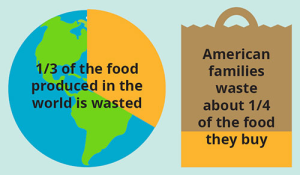In the ongoing battle against food waste, governmental policies and legislative measures stand as critical players. This comprehensive exploration delves into the current landscape of policies in the United States aimed at curbing food waste. From federal initiatives to state-level regulations, we will scrutinize the effectiveness of these efforts and their potential to reshape the nation’s relationship with food.
1. Federal Initiatives: A National Commitment to Waste Reduction
At the federal level, various initiatives have been implemented to address the pervasive issue of food waste. This section will provide an overview of key policies, including the Food Donation Act and the Good Samaritan Food Donation Act, exploring how these regulations incentivize food donation and protect donors from liability. Additionally, we’ll examine the role of the Environmental Protection Agency (EPA) in spearheading national campaigns to raise awareness and promote best practices in food waste reduction.

2. The Farm Bill: Impact on Production and Distribution Practices
The Farm Bill, a comprehensive piece of legislation encompassing various aspects of agriculture, plays a crucial role in shaping production and distribution practices. This segment will analyze specific provisions within the Farm Bill that influence farming practices, food distribution, and waste reduction. By understanding the impact of this legislation, we can gauge its effectiveness in fostering a more sustainable and efficient food supply chain.
3. State-Level Regulations: Tailoring Solutions to Unique Challenges
While federal initiatives set the tone, individual states have implemented their own regulations to combat food waste. This section will delve into state-level policies, highlighting innovative approaches and successful strategies that address the unique challenges faced by different regions. By examining the diversity of state initiatives, we can identify effective models that may inspire broader adoption.
4. Municipal Programs: The Role of Local Governance
At the grassroots level, municipalities play a pivotal role in shaping waste management policies. This segment will explore local initiatives, such as composting programs, food recovery networks, and regulations pertaining to commercial establishments. By understanding the impact of these programs, we can assess the effectiveness of local governance in fostering sustainable waste management practices.
5. Challenges and Opportunities: Navigating the Road Ahead
Despite significant strides, challenges persist in the implementation and enforcement of food waste policies. This section will address common hurdles, including issues related to infrastructure, education, and compliance. Moreover, we will explore emerging opportunities for policy refinement and innovation, envisioning a future where governmental efforts align seamlessly with the broader goal of minimizing food waste.
6. International Comparisons: Learning from Global Strategies
Drawing inspiration from global efforts, this segment will provide a comparative analysis of how other countries approach food waste reduction. By examining successful international strategies, we can glean insights into potential improvements and innovations that could enhance the effectiveness of existing U.S. policies.

Conclusion: A Call for Continual Progress
As we analyze the landscape of government efforts to combat food waste, it becomes evident that policy plays a pivotal role in shaping the trajectory of waste reduction. This exploration serves as a call for continual progress, urging policymakers to learn from successes and challenges alike. By fostering a dynamic, evolving approach to food waste reduction policies, we can collectively work towards a future where waste is minimized, and every morsel is valued.




